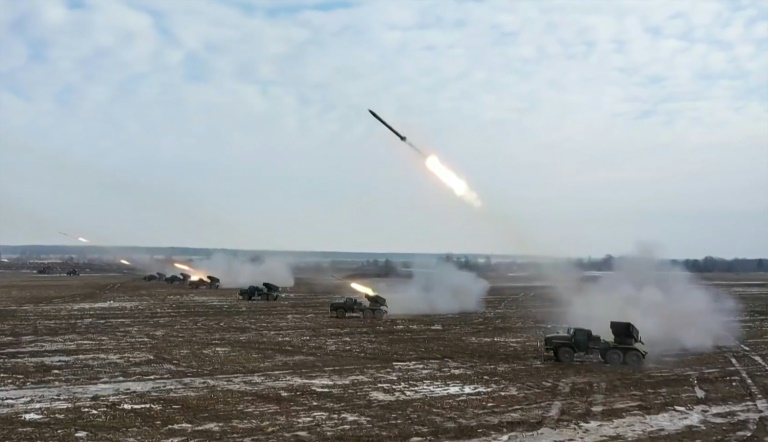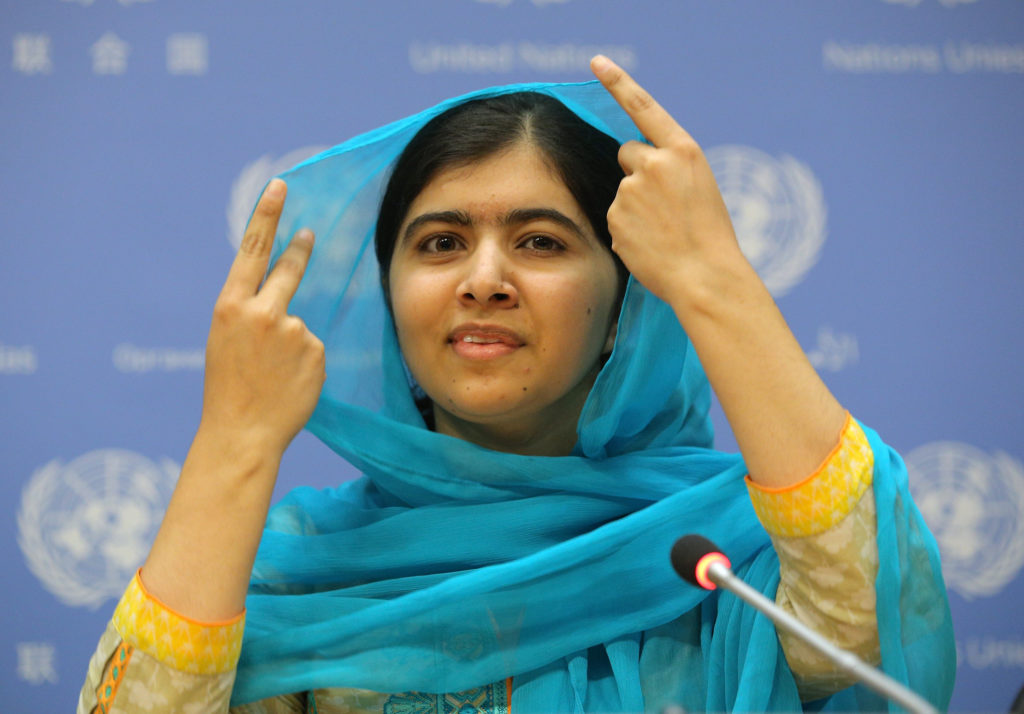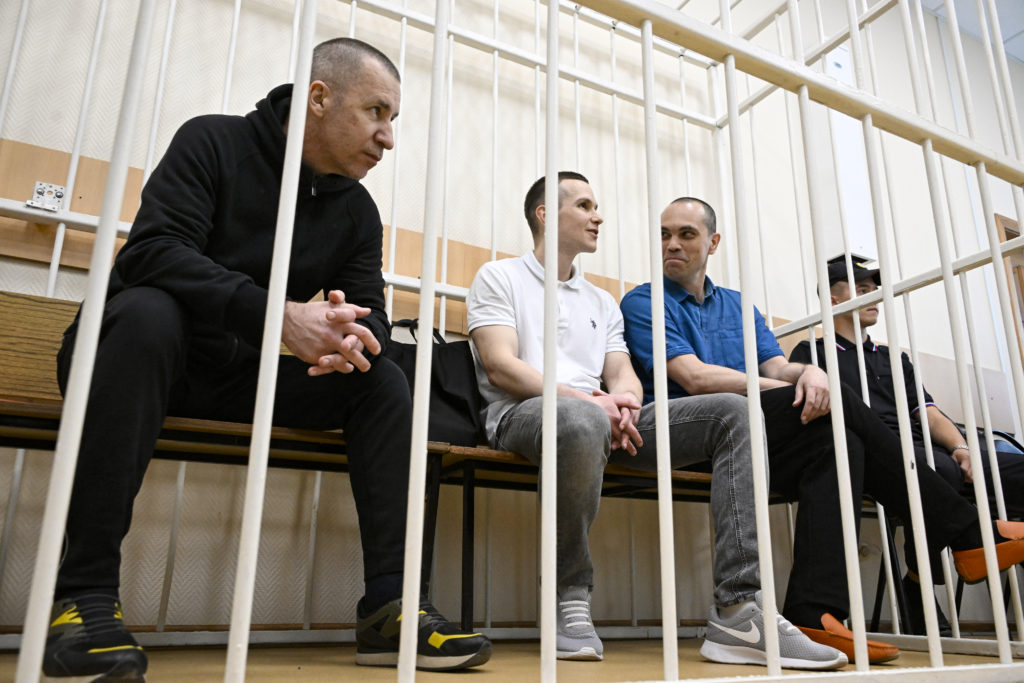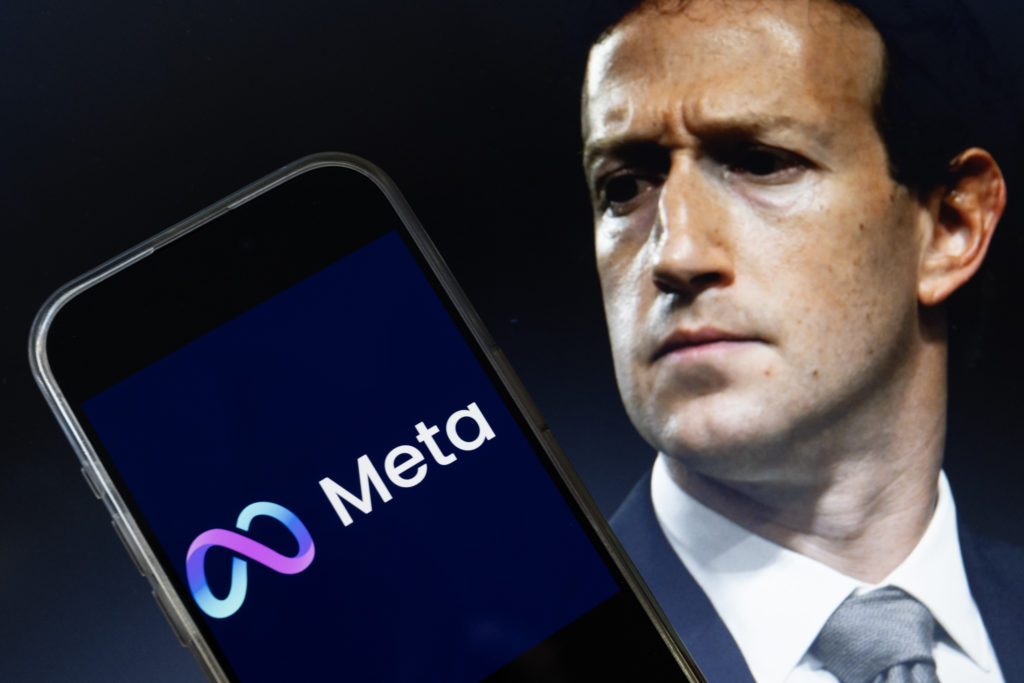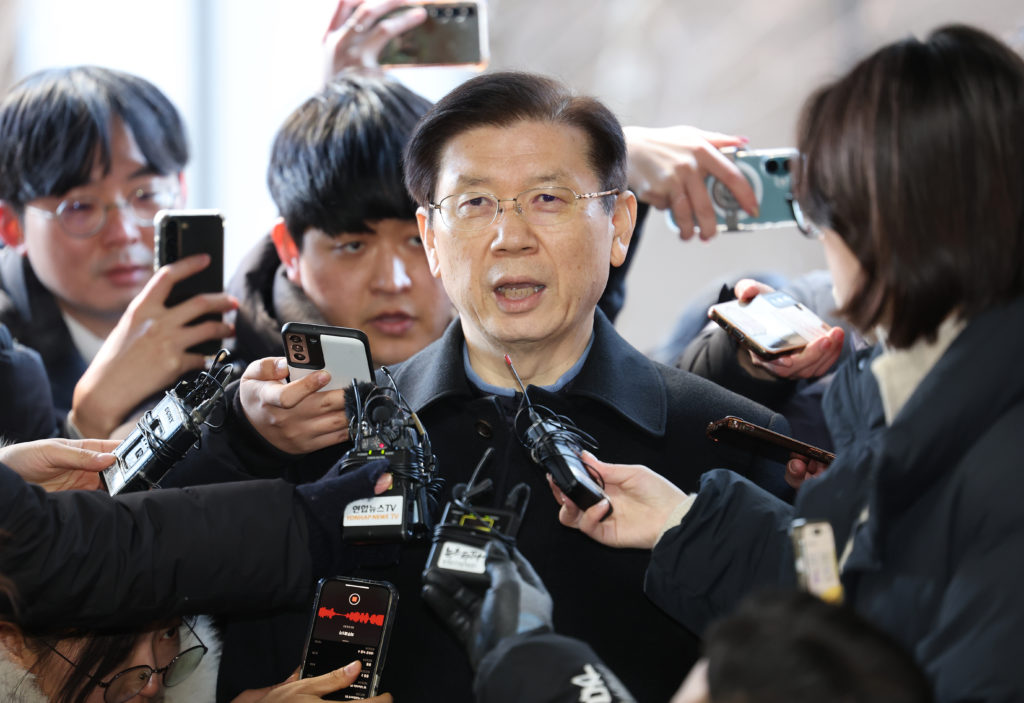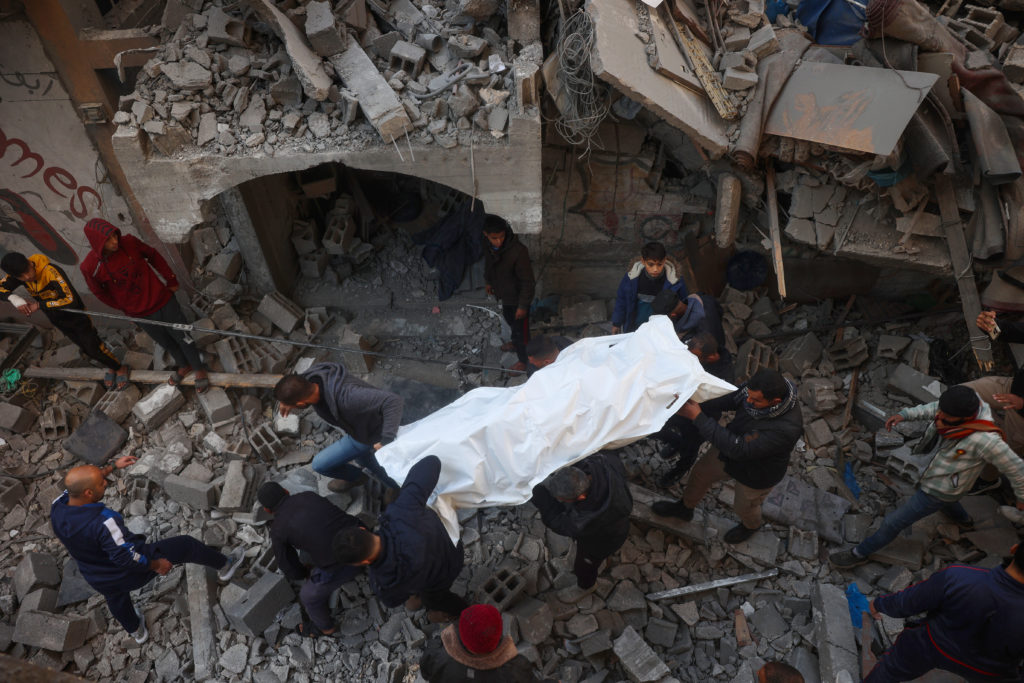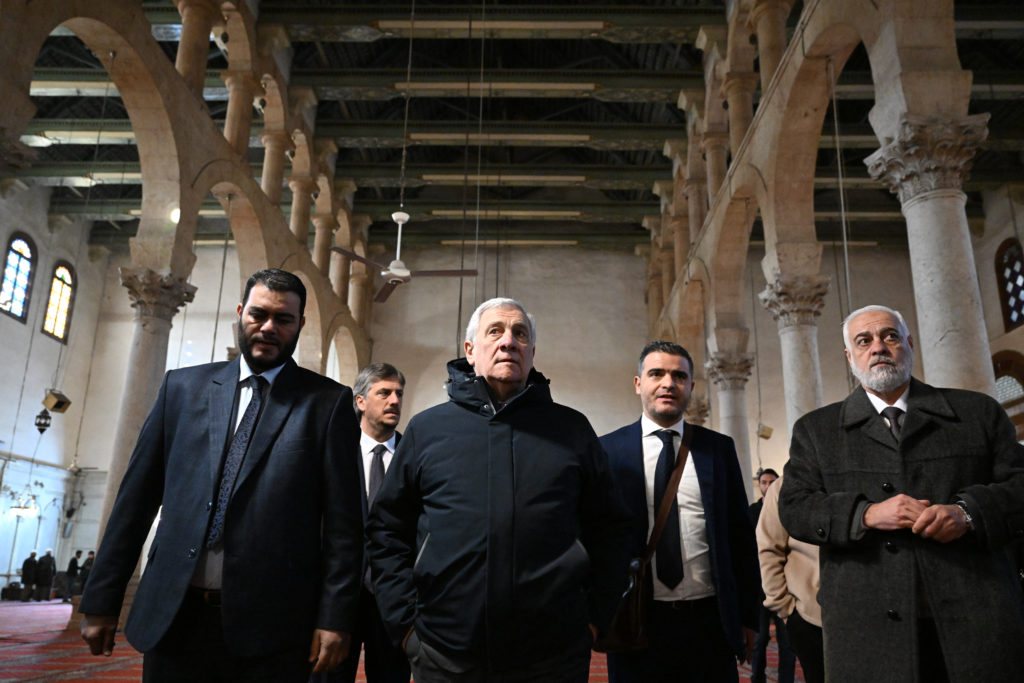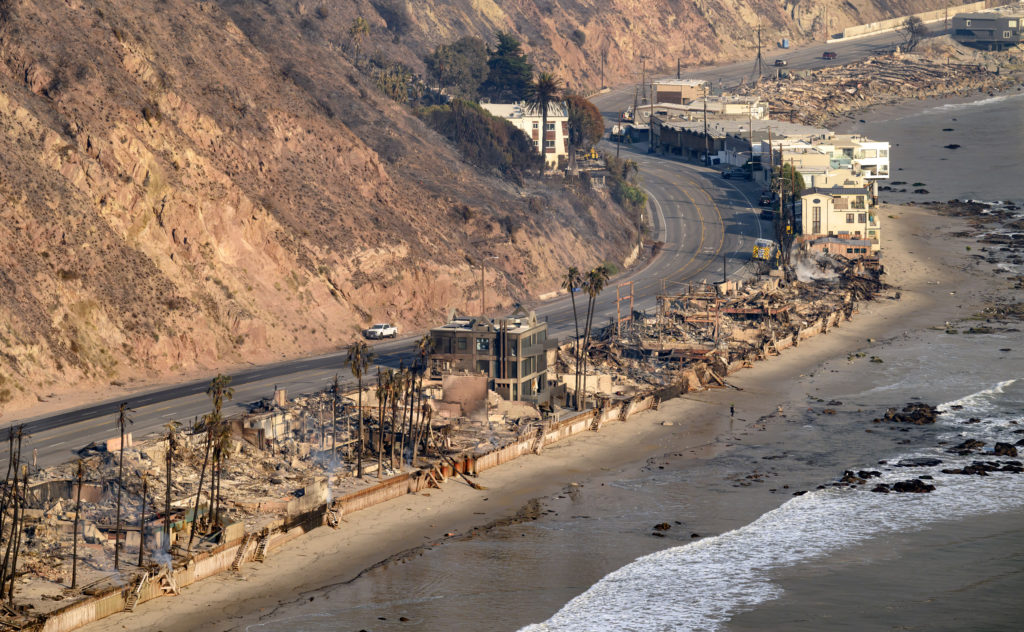The United States said Thursday that Russia is on the verge of unleashing a massive military attack against Ukraine, dismissing Moscow’s claim to be pulling forces back, as artillery fire hit a Ukrainian kindergarten.
In a dramatic, previously unscheduled speech to the United Nations in New York, US Secretary of State Antony Blinken said intelligence showed Moscow could order an assault on its neighbor in the “coming days.”
With US and other Western governments saying they see no evidence to support Russia’s claim to be withdrawing, Blinken challenged the Kremlin to “announce today with no qualification, equivocation or deflection that Russia will not invade Ukraine. State it clearly. State it plainly to the world.”
“Demonstrate it by sending your troops, your tanks, your planes, back to their barracks and hangers, and sending your diplomats to the negotiating table,” he said.
Russia denies any invasion plans but warned of “military-technical measures” if its far-reaching demands for a US and NATO pullback from eastern Europe aren’t satisfied.
President Joe Biden, at the White House, accused Moscow of preparing a “false flag operation” as a pretext for an attack and said this could happen “in the next several days.”
“They have not moved any of their troops out. They’ve moved more troops in,” Biden said. “Every indication we have is that they’re prepared to go into Ukraine.”
He added, however, that diplomacy is not dead. “There is a path. There is a way through this,” he said.
– ‘Forced to respond’ –
Russia has massed enormous air, land and sea forces around Ukraine. President Vladimir Putin and officials say they do not plan to invade Ukraine and that the troops are only conducting practice exercises.
However, Putin has made clear that the price for removing any threat would be Ukraine agreeing never to join NATO and for the Western alliance to pull back from a swath of eastern Europe, effectively splitting the continent into Cold War-style spheres of influence. Ukraine is far from being ready to join NATO but has set this as part of a broader goal to integrate with the democracies of western Europe, making a historic break from Russia’s orbit.
The United States said Thursday that it had received Putin’s response to its offers of a diplomatic solution to the crisis, but did not give any reaction to the contents.
The Russian foreign ministry indicated that there was little to discuss.
“In the absence of will on the American side to negotiate firm and legally binding guarantees on our security from the United States and its allies, Russia will be forced to respond, including with military-technical measures,” the foreign ministry said.
“We insist on the withdrawal of all US armed forces in Central Europe, Eastern Europe and the Baltics,” it added.
Russia also expelled the number two US diplomat in Moscow, the US State Department said, condemning the “unprovoked” action.
– Artillery fire on kindergarten –
Russia took over Ukraine’s Crimea region and began backing heavily armed separatists in the eastern Donetsk and Lugansk regions in 2014, sparking a war that has already cost thousands of lives.
Sporadic fighting remains common in the east and the Ukrainian army accused the pro-Russian separatists of 34 ceasefire breaches on Thursday, 28 of them using heavy weapons.
The potentially most serious incident — an example of the kind of spark that many fear could ignite far more intense fighting — was the shelling of a kindergarten in the village of Stanytsia-Luganska. Children were inside but none were hit.
Ukrainian President Volodymyr Zelensky tweeted that the attack “by pro-Russian forces is a big provocation.”
Russian news agencies meanwhile quoted authorities in the separatist Lugansk region saying they blamed Kyiv after the situation on the frontline “escalated significantly.”
US Defense Secretary Lloyd Austin described Thursday’s reports as “troubling.”
“We’ve said for some time that the Russians might do something like this in order to justify a military conflict. So we’ll be watching this very closely,” Austin told journalists after a meeting with NATO counterparts.
Western capitals say they are also concerned by the Russian parliament’s request that Putin grant unilateral recognition of independence for the separatists in eastern Ukraine, probably ending chances of reuniting the country.
“If this request were accepted, it would… demonstrate a Russian decision to choose a path of confrontation over dialogue,” British Foreign Secretary Liz Truss said.
Putin earlier this week claimed with no evidence that Ukraine is committing “genocide” in the eastern region.
– Disputed pull-out –
Moscow has made several announcements of troop withdrawals this week and on Thursday said that units of the southern and western military districts, including tank units, had begun returning to their bases from near Ukraine.
Defense ministry spokesman Igor Konashenkov said some troops had returned to their garrisons in several areas far from the border, including Chechnya and Dagestan in the North Caucasus, and near Nizhny Novgorod, some 300 kilometers (185 miles) east of Moscow.
The United States, NATO and Ukraine all said they had seen no evidence of a pullback, with Washington saying Russia had in fact moved 7,000 more troops near the border.
According to US officials, there are now about 150,000 Russian troops arrayed in offensive groupings on the southern, eastern and northern borders of Ukraine.
burs-sms/bfm

